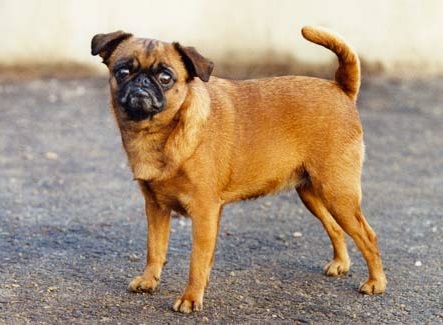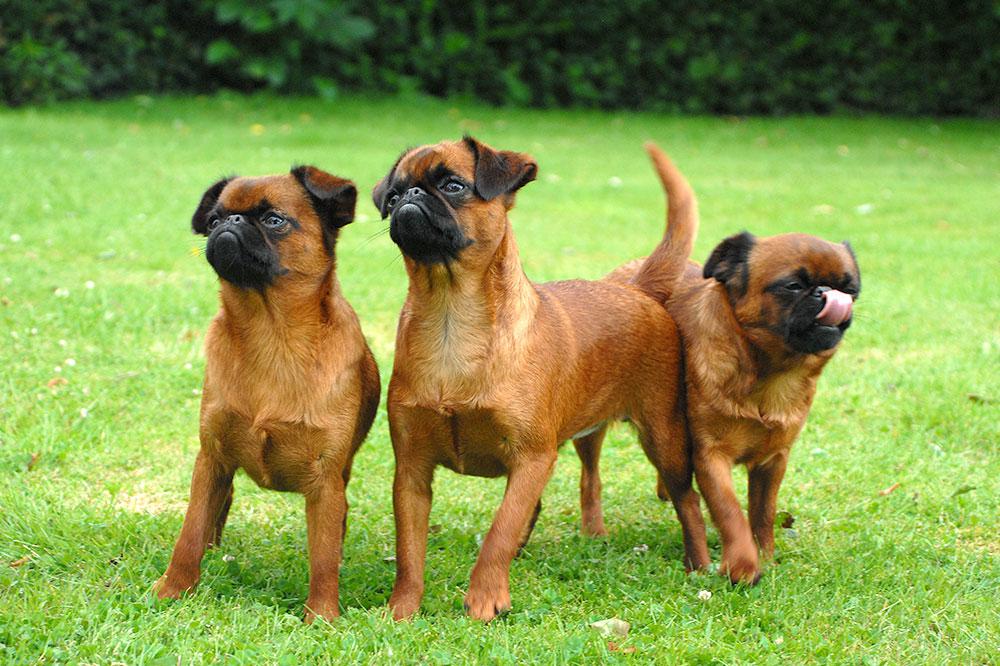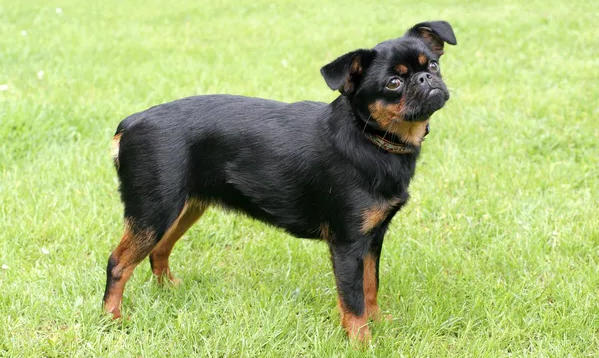
Petit Brabancon: A Complete Guide
History of the Breed
The Petit Brabancon, also known as the Brussels Griffon, has a rich history that traces back to 19th century Belgium. This small breed was developed primarily for the purpose of hunting vermin, particularly rats, in stables. It shares its ancestry with other Griffon breeds, including the Belgian Griffon and the Brussels Griffon. These breeds were bred down in size from larger rough-coated terriers to create a compact and affectionate companion dog.
The name «Brabancon» is derived from the region of Brabant in Belgium, where the breed was first developed. Over time, the Petit Brabancon gained popularity among Belgian workers as a loyal and entertaining companion. The breed’s charming appearance and playful personality soon caught the attention of dog enthusiasts worldwide, leading to its spread beyond Belgium’s borders.
Physical Characteristics

The Petit Brabancon is a small dog with a sturdy and compact build. It typically weighs between 8 to 12 pounds and stands around 7 to 8 inches tall at the shoulder. One of the breed’s most distinctive features is its expressive face, characterized by large, round eyes and a short, pushed-in nose. The coat of the Petit Brabancon is short, smooth, and comes in various colors, including red, black, black and tan, or belge (a mix of reddish-brown and black).
Despite its small size, the Petit Brabancon possesses a robust and athletic body, well-suited for its original purpose of hunting rodents. Its agile and alert demeanor is complemented by a confident and inquisitive expression, making it an eye-catching breed wherever it goes.
Health and Basic Care
Like many small dog breeds, the Petit Brabancon may be prone to certain health issues, including respiratory problems due to its brachycephalic skull shape. Brachycephalic breeds have shortened airways, which can lead to breathing difficulties, especially in hot or humid weather. Additionally, Petit Brabancons may be susceptible to dental issues, skin allergies, and luxating patellas.
To ensure the health and well-being of a Petit Brabancon, it’s essential to provide regular veterinary check-ups, a balanced diet, and sufficient exercise. Dental care is particularly important, as small breeds are often prone to tartar buildup and periodontal disease. Maintaining a healthy weight through proper diet and exercise can also help prevent obesity-related health problems.
Temperament and Personality
Petit Brabancons are renowned for their affectionate and lively personalities. They are intelligent, alert, and possess a keen sense of curiosity about the world around them. Despite their small stature, they are not lacking in confidence and will fearlessly assert themselves in any situation. This boldness, combined with their devotion to their owners, makes them excellent watchdogs and loyal companions.
While Petit Brabancons form strong bonds with their families, they may be reserved or wary around strangers. Early socialization is crucial to help them develop into well-rounded dogs who are comfortable in various environments and with different people and animals. With proper training and socialization, Petit Brabancons can coexist harmoniously with children, other pets, and visitors to the home.
Training and Socialization

Training a Petit Brabancon requires patience, consistency, and positive reinforcement techniques. These intelligent dogs respond well to reward-based training methods, such as treats, praise, and playtime. However, they can also be sensitive to harsh or heavy-handed training methods, so it’s essential to use gentle and encouraging approaches.
Early socialization is equally important for Petit Brabancons to help them build confidence and learn appropriate behavior around other dogs and people. Exposing them to different environments, sounds, sights, and experiences from a young age can help prevent fearfulness or aggression later in life. Positive interactions with strangers, children, and other animals will also contribute to their social development.
Nutrition
Providing a balanced and nutritious diet is essential for the health and longevity of a Petit Brabancon. Choose a high-quality dog food formulated for small breeds, which provides the necessary nutrients to support their energy levels and overall well-being. Pay attention to portion sizes to prevent overfeeding and obesity, as excess weight can exacerbate health issues such as respiratory problems and joint issues.
Avoid feeding table scraps or excessive treats, as these can contribute to weight gain and nutritional imbalances. Instead, offer healthy snacks in moderation, such as small pieces of fruits or vegetables, lean meats, or specially formulated dog treats. Fresh water should be available at all times to keep your Petit Brabancon hydrated and healthy.
Suitable Environment
Petit Brabancons are adaptable dogs that can thrive in various living environments, including apartments, suburban homes, or rural settings. While they are well-suited to apartment living due to their small size, they still require daily exercise and mental stimulation to stay happy and healthy. Regular walks, play sessions, and interactive toys can help fulfill their physical and mental needs.
When it comes to living arrangements, Petit Brabancons prefer to be close to their human companions and thrive on attention and affection. They are indoor dogs by nature and should not be left alone outdoors for extended periods. Secure fencing is essential if they have access to a yard, as their curious nature may lead them to explore beyond the boundaries of their property.
Frequently Asked Questions
What breeds make a Petit Brabancon?
The Petit Brabancon is closely related to other Griffon breeds, including the Belgian Griffon and the Brussels Griffon. These breeds share similar physical characteristics and were developed in Belgium for similar purposes.
Do Petit Brabancons have breathing problems?
Due to their brachycephalic skull shape, Petit Brabancons may be prone to respiratory issues such as snoring, wheezing, and difficulty breathing, especially in hot or humid weather. It’s essential to provide them with a cool and well-ventilated environment and avoid strenuous exercise in extreme temperatures.
Is the Petit Brabancon hypoallergenic?
While no dog breed is entirely hypoallergenic, Petit Brabancons may be suitable for allergy sufferers due to their minimal shedding and short coat. However, individual reactions may vary, so spending time with a Petit Brabancon before bringing one home is advisable for those with allergies.
